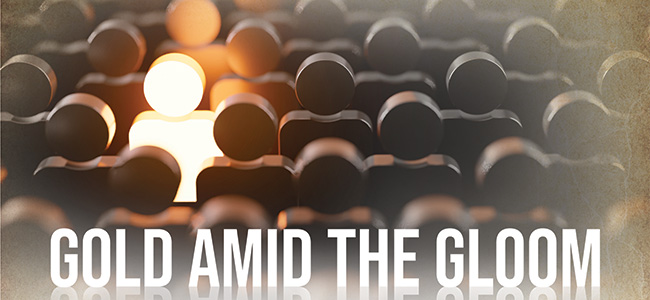Render unto Caesar?

Could anyone from past generations ever have pictured our world today? Technological advances abound at breakneck speed in fulfillment of Bible prophecy, just as the prophet Daniel was told that at the time of the end, “many shall run to and fro, and knowledge shall be increased” (Daniel 12:4). Means of transportation have certainly skyrocketed, enabling mobility to increase exponentially—and no doubt about it—knowledge has increased.
Yet what kind of knowledge? We might categorize it as follows:
The knowledge of God’s goodness. For example, the prophecies of the book of Daniel sealed up for millennia are today open to our understanding. The Word of God has become an open book as never before.
Complex engineering technologies based on sound science and human experience which typically might be used either for good or for evil.
The knowledge of evil.
In the garden of Eden was a tree of the knowledge of good and evil—and our first parents were warned not to partake of that tree whose very name showed it was not all evil. The fruit may have seemed harmless—but in reality the good of that tree comingled with evil. That’s why they were warned.
In recent generations, there’s been much indulging in the fruit of that tree, figuratively speaking. Currently, the rampant knowledge of evil has become a plague upon humanity. Childhood innocence has been blighted and the moral compass of our race seems to have been almost completely eradicated.
Nearly 120 years ago, the observation was already made:
“The greatest want of the world is the want of men—men who will not be bought or sold, men who in their inmost souls are true and honest, men who do not fear to call sin by its right name, men whose conscience is as true to duty as the needle to the pole, men who will stand for the right though the heavens fall.”1
This was the greatest “want” (or “need”) back then, and so it is today. The next few sentences are equally important:
“But such a character is not the result of accident; it is not due to special favors or endowments of Providence. A noble character is the result of self-discipline, of the subjection of the lower to the higher nature—the surrender of self for the service of love to God and man.”2
We all admire people willing to risk their fame, fortune and even life itself for a truly worthwhile cause. The cause of God in these last days requires self-surrender and self-discipline. How does this happen? How are Christians to witness of His grace to a society darkened by immorality and discouragement?
“Trials patiently borne, blessings gratefully received, temptations manfully resisted, meekness, kindness, mercy, and love habitually revealed, are the lights that shine forth in the character in contrast with the darkness of the selfish heart, into which the light of life has never shone.”3
“Our profession of faith may proclaim the theory of religion, but it is our practical piety that holds forth the word of truth. The consistent life, the holy conversation, the unswerving integrity, the active, benevolent spirit, the godly example,—these are the mediums through which light is conveyed to the world.”4 May we shine as such lights in the strength of Christ!